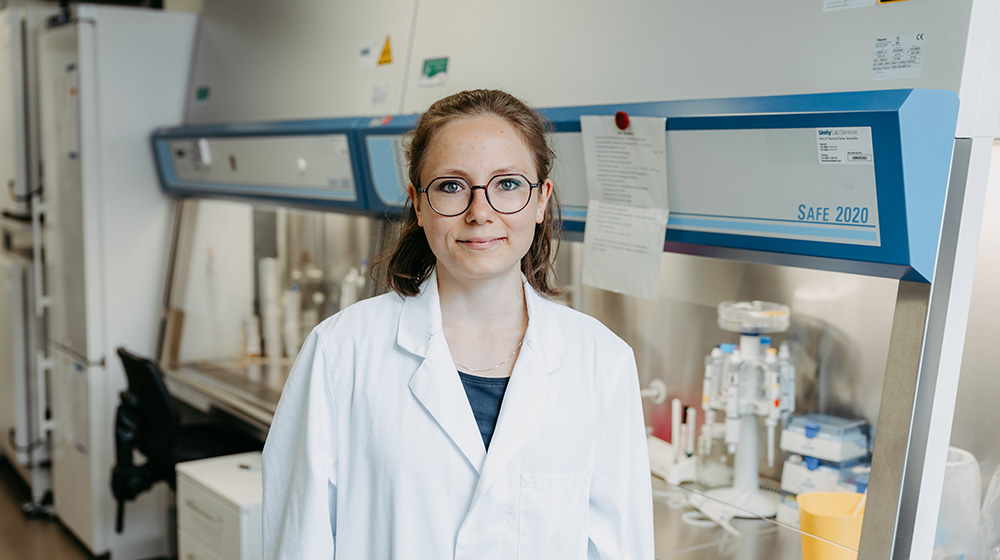
With the Master's degree program in Medical Systems Engineering, the University of Magdeburg offers students the opportunity to develop new systems and procedures for research and application in medicine. Pauline Mothes, 23, is now in her third semester of Medical Systems Engineering at Magdeburg University after successfully completing her Bachelor's degree in Medical Technology. One of the reasons she chose the master's program was the Tissue Engineering working group, which has been active at Magdeburg University since November 2018.
Tissue engineering is the generic term for the artificial production of biological tissue, which, among other things, is helpful in medical research for the development of new therapeutic approaches or can be used to test materials and drugs. "I really enjoyed the bachelor's program in Magdeburg and when I was looking for a master's, the focus in Magdeburg convinced me" says Pauline Mothes, for whom the initiator of the tissue engineering working group, Professor Heike Walles is also a role model. "I particularly like getting to know the practical application of this knowledge in the various medical technology fields after learning the basic theoretical knowledge in the bachelor's degree," says Mothes.
"The feeling of learning something that I could start working with directly in different areas excites me," Pauline says. In her master's thesis, she is working on finding a treatment option for a malignant tumor of the pleura, a disease that until now has been virtually untreatable. The goal of the current research is to produce a kind of patch made of artificial tissue that can be implanted directly into the affected area to precisely release medical agents there. To do this, it must be ensured - among other things - that the tissue patch also releases the active ingredients as planned.
The task of Mothes, a master's student, is to develop a suitably large tissue model on which the release of the drugs and their biological compatibility can be tested. The aim is to determine whether a transplant would be possible for patients. For the student, this means that in addition to theoretical research on methodology and previous research in the field, she is also in the lab doing hands-on work. Pauline compares making the tissue model to pouring Jell-O, except that human cells are then added to this "Jell-O." These, in turn, must be supplied with nutrients to survive and reproduce. "It's a bit like feeding a pet," Pauline Mothes explains. What she likes about her work is that she has to look for solutions to previously unsolved problems. "It's not enough to copy something that someone has done before me. I have to find something new, and that challenge excites me." She would like to continue working in this field after she graduates.
